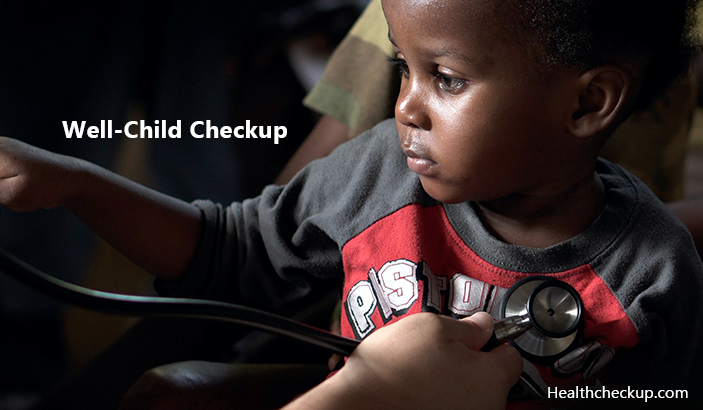Well-child checkups are important for babies. These checkups are done in a healthy child. These checkups help the diagnosis of disease at an early stage and are also important to prevent diseases. Vaccination schedules are also adhered to due to well-child checkups. The doctor analyses the eating habits and activity level of the child. The baby undergoes a comprehensive health evaluation which includes eye, ear oral, dental, and skin examination along with checkup of heart and lungs. Immunization schedules and children’s health screening guidelines will be provided by the pediatrician during well-child health checkups.
What Are Well-child Checkups?
Well-child check-ups are the routine check-ups done on a healthy child. This is different from visiting the hospital when your child is sick. The well-child checkups come under the category of preventive checkups. Parents take their child to the pediatric specialist for a comprehensive health screening of their baby. These checkups allow the parent to get information about the development and growth of the baby.
Why Well-child Checkups Are So Important?
Well-child checkups are important to keep an eye on the development of the child. Following are some of the advantages of Well-child checkups;
1. Identification Of Development Issue
There may be certain developmental issues in the otherwise healthy child that the parent might skip. These developmental issues lead to improper growth and development of the child. Many-a-time, the child may have mental and physical development issues. These issues are diagnosed during routine well-child checkups.
2. Diagnosing The Problem In An Early Stage
Diagnosing the disease at an early stage leads to avoid progression and early recovery. During well-child checkups, comprehensive health evaluation of the child is done including eye examination, dental examination, and cardiac-and diabetic screening. Any disease, if found, is treated at an early stage.
3. Vaccination On The Scheduled Time
Vaccination is the best method of preventing disease. It should be done as per the schedule. During the well-child checkup, the child receives vaccination and the doctor provides information about further scheduled vaccination.
4. Preventive Education To Parents
The doctor provides detailed information about how to prevent the child from the disease, what are the hygienic measures to be followed, and what should be a healthy diet for children among other general topics. Well-child checkups are important, especially for the parents having their first child, for getting authentic and customized information about upbringing the child.
5. Analyzing Eating Habits, Risky Behavior, And Activity Levels Of The Child
The eating habits and activity levels of the child say a lot about its overall growth and development. During the well-child checkups, the doctor asks various questions about risky behaviors and the activity level of the child.
How Often Are Well-child Checks Needed?
The well-child visits are recommended by the pediatrician as per the requirement. The American Academy of Pediatrics advises that the child should be taken to the pediatrician for a check-up at Birth, after 2 weeks, two months, four months, six months, nine months, 12 months, and 24 months. After that, there should be annual check-up visits for the child.
What Happens In A Well-child Check?
You can expect the following during well-child checkups;
1. Baby’s Measurement
The baby’s growth curve is prepared by measuring the weight and height of the baby along with head circumference. This allows the pediatrician to evaluate the physical growth of the child.
2. Baby’s Overall Development
The doctor will ask several questions from you to analyze the overall mental development of the baby.
3. Eye Examination
The doctor will perform a complete ocular examination of the baby by using an ophthalmoscope. He may also track the movement of the eyes while flashing light on the baby’s eye.
4. Ear Examination
Response to sounds and the presence of any infection in the baby’s ear should be checked by the doctor.
5. Oral Examination
The doctor may look for any fungal infection (oral thrush) and the progress of teeth development in the baby.
6. Head Examination
The doctor will evaluate the status of fontanels on the baby’s health which is important for the growth of the baby’s brain.
7. Other Evaluations
Abdominal examination, Skin examination, Heart and lung examination, Genitalia examination, Hips and legs examination, and Vaccination schedules are also performed during well-child checkups.
During well-child health checkups, the doctor provides information about the children’s health screening guidelines and immunization schedule for children.

Rohit Jain is an IPR Specialist and Medical Content Writing Expert. For over a decade, he has written several articles in the areas of female infertility, Erectile dysfunction, hemangioma, cervical cancer, monoclonal gammopathy of undetermined significance, mononucleosis, mitral valve disorder, nerve sheath tumor, shin splints, mild cognitive impairment, cellulitis, brain metastases, atelectasis, MCAD deficiency, lymphoma, sepsis, cardiac rehabilitation and metabolic disorder among others.








